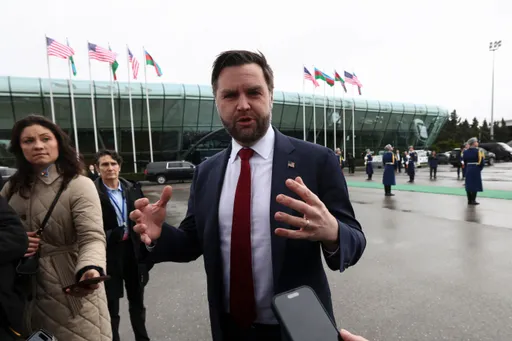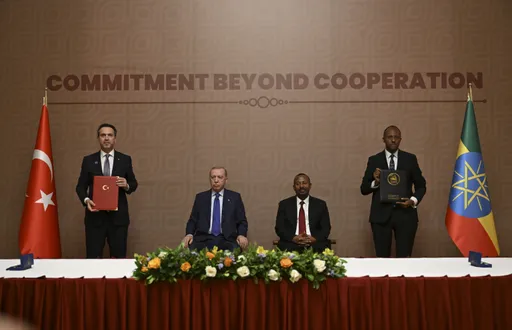The Philippines has announced that it would terminate the Visiting Forces Agreement (VFA) that it has with the United States on February 11, 2020, sending notice to the US government.
The VFA sets the framework for joint exercises and engagement of American soldiers in the Philippines. It allows for US jurisdiction over US military personnel (except for crimes of importance to the Philippines) and allows US servicemen and women to be exempt from passport and visa regulations.
“The President directed the Executive Secretary Salvador Medialdea to tell Secretary Teddy Boy Locsin of the Foreign Affairs to send a notice of termination to the US government last night and the Executive Secretary sent the message to Secretary Teddy Boy Locsin and the latter signed the notice of termination... and sent to the US government today,” The Philippines’ Presidential Spokesman Salvador Panelo told a press briefing.
According to Filipino President Rodrigo Duterte, who spoke hours before the deal was terminated, US President Donald Trump was trying to “save” the deal, the Manila Standardreported.
Yet Panelo said Duterte would not consider any initiative from Washington to salvage the VFA, nor would he agree to visit the United States, the Manila Standard said.
US authorities had previously cancelled the US visa of Philippine Senator Ronald dela Rosa, the NPR reported. Dela Rosa, the former chief of National Police, is a Duterte ally who enforced Duterte’s brutal war on drugs notorious for its extrajudicial killings and rights violations that were condemned by human rights organisations.
Duterte had suggested he would terminate the VFA if dela Rosa’s US visa was not reissued, putting in jeopardy decades of cooperation between the US and the Philippines, an archipelagic nation in the western Pacific Ocean.
‘Significant implications’
The US Embassy in Manila issued a thoughtfully worded statement about Duterte’s decision, calling it “a serious step with significant implications”. It emphasised the “warm relationship” between the two countries, and noted that the US will “carefully consider how best to move forward to advance our shared interests.”
Philippines’ Foreign Secretary Teodoro Locsin Jnr told the Senate the relationship with Washington remained vital to ‘countering threats to national security’ before the VFA was cancelled.
Locsin said in a televised speech that ending the VFA would affect more than 300 collaborations with US forces this year “which the Philippine military and law enforcement agencies need to enhance their capabilities in countering threats to national security.”
Locsin’s words went unheeded as Duterte terminated the VFA, despite the warning that there may be a “chilling effect on our economic relations” with the US who provided more than $550 million in security assistance to the Philippines from 2016 to 2019. In 2018, the Philippines received more than $342 million in US aid in sectors such as governance, commodity assistance, health and population. In 2019 around $164 million had been earmarked.
If relations between the US and the Philippines sour, would the Philippines seek new allies in Russia and China, or is the termination of the VFA just posturing from the brash Filipino president?
Prashanth Parameswaran, writing for the Diplomat, posits that “[the termination of the VFA] would constitute the biggest blow to any of [the United States’] treaty alliance relationships in Asia since the end of the Cold War, at precisely the time when the United States is trying to refocus itself on geopolitical competition with major powers, principally China and Russia.”
Parameswaran adds, “For Manila, this would degrade a significant source of security that it has continued to rely on even as its military capabilities remain limited and the threat posed by China remains real in spite of Duterte’s much-ballyhooed charm offensive to Beijing.”
Duterte’s “charm offensive to Beijing” may work and the Philippines and China may find themselves drawn closer together after Manila’s snub to the US, yet China’s military and economic power far outweigh the Philippines’, so the balance between the two countries is likely to be uneven.
In fact, John Power, writing for South China Morning Post, says China has already outpowered even the US in the South China Sea dispute, let alone smaller countries.
“Since 2012, Beijing has constructed more than two dozen island outposts around disputed reefs and islets in the strategic waterway, where the Philippines, Vietnam, Malaysia, Brunei and Taiwan all have competing territorial claims, allowing it to deploy missile batteries, radar systems and aircraft hundreds of miles from the Chinese mainland,” Power notes.
Writing for OZY, Dimitri Simes Jr analyses Russia’s blossoming relationship with the Philippines. “Since Duterte took office in 2016, Russian warships have visited the Philippines six times. Russia in 2017 donated thousands of assault rifles and helmets, nearly a million rounds of ammunition and 20 trucks to the Philippines,” he points out.
If the VFA incident succeeds in alienating the United States, there is a possibility that the Philippines could turn to Russia as a strong ally.
“[Russian political elites are] also growing frustrated with China’s lackluster desire to invest in Russia or join it in resisting the West’s sanctions against Moscow, says Alexey Maslov, a professor at the National Research University Higher School of Economics,” Simes writes. “To address this growing imbalance, Russian is seeking out partnerships with other players in Asia — including those that have a difficult relationship with China. The Philippines — which is locked in a maritime dispute with China — fits the bill perfectly.”
Refusing to cooperate with the United States, the Philippines may be opening itself up to cooperation with China and Russia, but probably not both, as the superpowers are adversaries.
Without US backing after the VFA incident, the Philippines will have an even weaker hand when it comes to negotiating with either, unless in the 180 days it takes for the termination to go into effect, the US and the Philippines negotiate a better deal.























